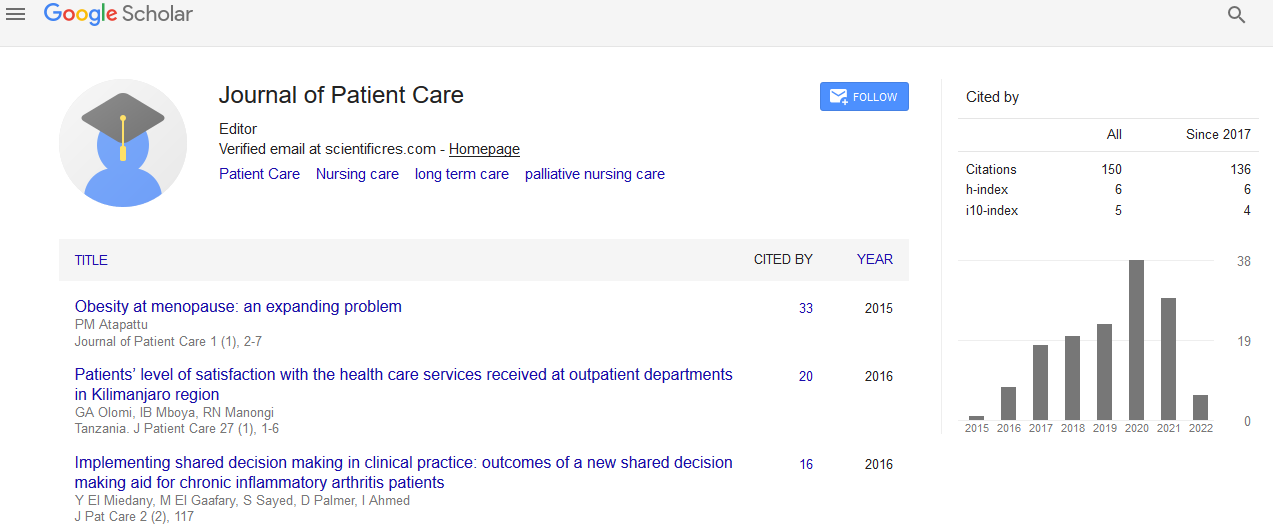Indexed In
- RefSeek
- Hamdard University
- EBSCO A-Z
- Publons
- Geneva Foundation for Medical Education and Research
- Euro Pub
- Google Scholar
Useful Links
Share This Page
Journal Flyer

Open Access Journals
- Agri and Aquaculture
- Biochemistry
- Bioinformatics & Systems Biology
- Business & Management
- Chemistry
- Clinical Sciences
- Engineering
- Food & Nutrition
- General Science
- Genetics & Molecular Biology
- Immunology & Microbiology
- Medical Sciences
- Neuroscience & Psychology
- Nursing & Health Care
- Pharmaceutical Sciences
Abstract
GSM (Genitourinary Syndrome of Menopause)
Kelly Peters
It is estimated that nearly 60% of women in menopause experience a condition called genitourinary syndrome of
menopause (GSM) but the majority of these women do not bring up this concern with their health care provider.
Studies also show that only 7% of healthcare providers ask women about this condition. This may be due to
embarrassment or thinking this is a normal part of aging; both by patients and healthcare providers. This condition
is progressive and may affect many aspects of a woman’s health including dyspareunia and subsequent decreased
libido, as well as an increased risk of vaginal and urinary tract infections, pelvic organ prolapse and incontinence.
Women may stop exercising due to discomfort and increase their risk of obesity related health problems as well as
emotional health issues. It may also cause women to avoid coming in for their gynecologic exams with the potential of
a missed or delayed diagnosis of a serious medical condition. This article is intended to address the signs, symptoms
and significant impact this condition can have for women as well as help healthcare providers learn to ask about this,
diagnose it, understand the impact it may have on women’s health and review various available treatment options.
Published Date: 2020-09-28; Received Date: 2020-08-14

